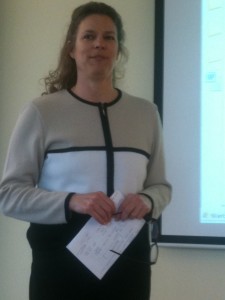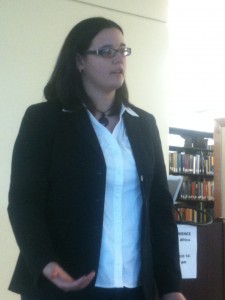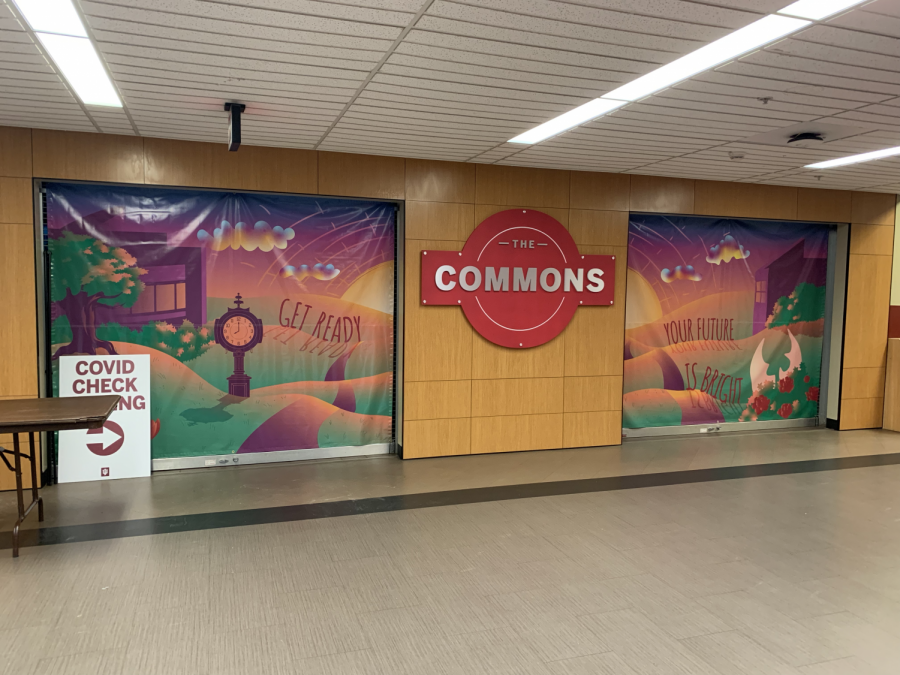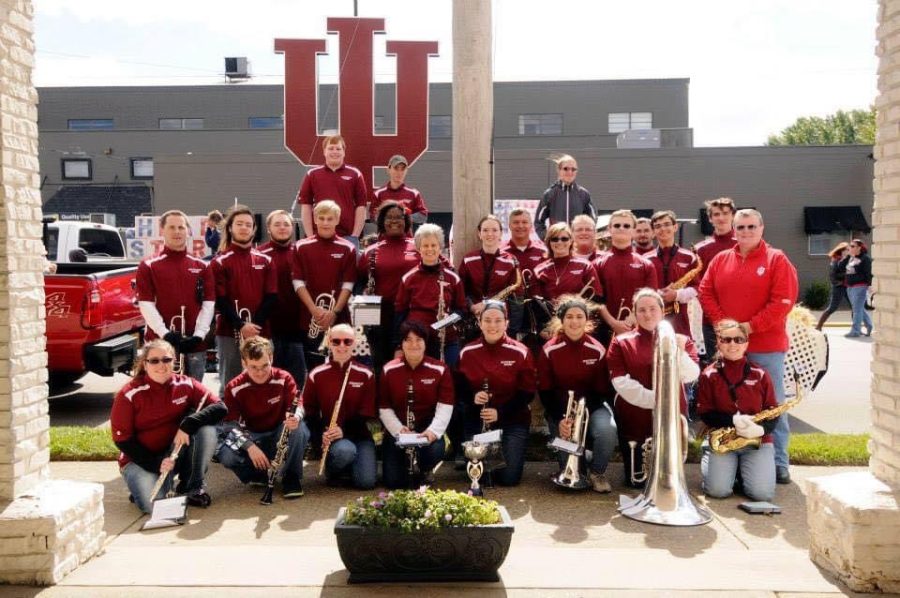
The Common Experience event “Volunteerism in Africa” focused on two individuals who volunteered in Africa and their involvement in educating youth.
The speakers were introduced by Maria Accardi, assistant librarian and co-chair of the Common Experience Program, who said the purpose of the Common Experience for the 2011-12 school year is to join people together with the common theme of liberty and justice.
The two women, Karen Kaye, adjunct instructor of English, and Jill Erwin, instructor of English at Elizabethtown Community College, both volunteered in different parts in Africa.
Kaye volunteered in South Africa in a town called Udumo, while Erwin was in Malawi, a country in southeast Africa formerly known as Nyasaland.
Kaye went to Africa through the Peace Corps from 2009-11.
While in college as a non-traditional student, she said she wanted to serve in the Peace Corps but was unable since she had a family to take care of.
She said she liked South Africa because it was colonized, different types of people live there, and she was impressed by the tremendously high rates of racial interaction there.
Compared to America, which has had more than 100 years to work on racial differences, South Africa has not even had 20 years.
“The racial tensions in that country are very powerful,” Kaye said. “There are people of different colors and ethnicities, and people are very proud of their cultural identity.”
In South Africa, she worked in a group with 40 people who were there for educational purposes.
When Kaye first arrived in Africa, she lived with a host family for six weeks.
“They taught us everything we needed to know about living in rural South Africa in six weeks,” Kaye said.
She said her assignment was to teach in two schools. The first school was a Technical college and she lived on campus. The other was a primary school, and she taught 6th grade English.
Kaye said she was busy and had to learn the national curriculum.
She also served as a teacher trainer but did not conduct a great deal of training since everyone was overworked.
Kaye said the culture encourages socialization over attending classes in South Africa.
Kaye moved herself into campus development and helped with HIV and AIDS education, planned Valentine’s Day events, organized vendors and special speakers and passed out condoms. She also participated in organizing HIV and AIDS testing.
Her primary school was approximately 20 minutes away by foot, and she said she enjoyed her work at the primary school more than the technical college.
Kaye brought awareness during her speech on how individuals in rural Africa live in poverty and their lack of available healthcare.
Kaye said she is glad she went and had the experience in Africa.
“I am very happy to be an American,” Kaye said. “I am patriotic, and I’ve never been patriotic before. I just feel lucky and blessed to live in this country — that I can go and turn on a tap and clean water comes out.”
Kaye said she would not volunteer in Africa again.
“I felt like my health and safety was at risk every single day,” Kaye said.
Kaye said the public transportation is very dangerous, there is violence and two men in her group were attacked three times.
She said she encourages students to do their research before they decide to volunteer in another country.
Erwin served in Malawi in the summer of 2007 and again in 2009, both times for two months. Her assignment was to teach English from kindergarten to high school, but she ended up teaching everything from English to agriculture.

“There is no set way to go about teaching,” Erwin said. “There were so many teachers who would be out sick any given day because of malaria complications or tuberculosis, or some of them died while I was there.”
Erwin said her expectations were high, and she went into the experience naive. She said she realized quickly to be open to what the people there have to teach. Living as a homeless person her senior year of high school, Erwin experienced the difference of living in the United States homeless and still having access to clean water and living as a wealthy person in Malawi and not having anything.
“As one of the wealthiest people living there, there was no indoor plumbing,” Erwin said, “and, if it did come on, you certainly couldn’t drink the water or get it in your eyes.”
Erwin said she ended up with bacteria in her eye — a leading cause of blindness — and, if it were not for her going back to the United States in time to seek healthcare, she could have lost her vision.
After her arrival home, she took a shower without having to use a UV light to clean the water.
“I wept in gratitude,” Erwin said.
She said her advice to students is to help their neighbors.
“If every person did something, help your neighbor or help your neighbor 5,000 miles away, do something, because it does make a difference,” Erwin said.
She said she would like to go back to Africa but is in need of sponsors to finance her trip.
Haylee Roach, elementary education freshman, went to the speech as a class requirement, and she said it sparked an interest in her to learn about what other people had to say about their experiences.
“I would probably go somewhere else, other than Africa just because of the things she was saying,” Roach said.
By ANA-MARIJA DRINOVAC
Staff
adrinova@umail.iu.edu






